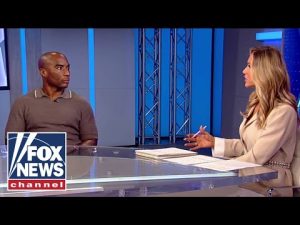In today’s deeply polarized landscape, it appears that political discourse in the media has taken a rather predictable turn. Many left-leaning shows seem to have perfected the art of speaking within echo chambers, where diverse political viewpoints are akin to mythical creatures. For instance, Stephen Colbert, who once thrived by poking fun at everyone, now often seems to alienate half the country with his narrow focus. Then there’s “The View,” where diversity apparently only means gathering a crowd of left-leaning guests—a grand total of 102 in recent months, to be exact, all devoid of any conservative voices. It’s as if they’ve indulged in a buffet of opinions, but only those of one flavor.
One can’t help but wonder if there remains an appetite for civil discussion in what’s dubbed “political entertainment.” Is there really no room for a robust exchange of ideas, especially when considering how important it is for audiences to hear differing viewpoints? Or is this the new normal on liberal networks, where everyone nods in agreement and disagreement is about as welcome as a cat at a dog show? There may yet be a need for programs that encourage genuine dialogue, a place where people aren’t afraid to venture beyond their ideological comfort zones.
In the world of media empires, cultural institutions like ABC News have quietly admitted they suffer from a lack of diversity—not of race or gender, but of thought. It seems there are few supporters of certain political figures, like Donald Trump, nestled within mainstream networks. This lack of varied perspectives may inadvertently be crafting a one-sided narrative, which is a disservice to viewers who might appreciate a less lopsided batting average.
It’s crucial to present a spectrum of viewpoints. Broadcasting only one side of the political spectrum is akin to tuning into a concert where every musician only plays the trumpet. The music of democracy is richer and more harmonious when there’s a full orchestra of ideas and perspectives. Without it, audiences are left with a monotonous tune, which might explain why some shows are experiencing a bit of an audience decline. Civil disagreement is as American as apple pie, after all.
As for the up-and-coming political players, one guest even suggested that if the political scene needs a shakeup, why not throw a celebrity into the mix—maybe a Jon Stewart to shake things up in 2028? It appears there’s a longing for something, or someone, different. Meanwhile, over in the Republican Party, there’s buzz about reclaiming its traditional conservative roots. Could this be a sign of a pendulum swing for both parties? Only time will tell if the old guard will rise or fall. Political landscapes, much like reality TV, thrive on twists and turns, not repetitions of the same tired episodes. Audiences are craving fresh narratives, and the political theatre just might be due for a rewrite.







